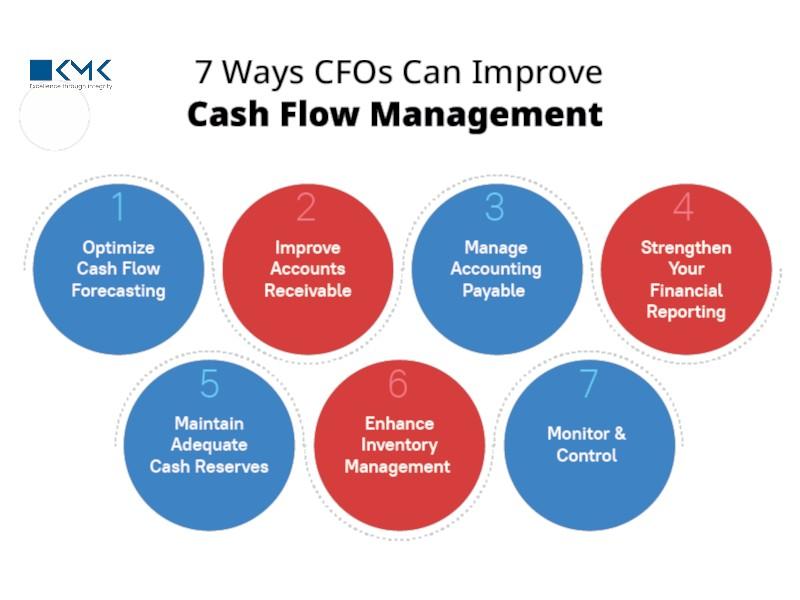Overcoming Cash Flow Challenges With Virtual Accountant Reporting

Cash flow is the lifeblood of any business, especially for small enterprises. Managing cash flow effectively can mean the difference between thriving and merely surviving. However, many small businesses face cash flow challenges that can hinder their growth and stability. Fortunately, partnering with a virtual accountant for small business can provide the insights and reporting needed to overcome these challenges. In this blog post, we will explore how virtual accountant reporting can help small businesses manage their cash flow more effectively.
Understanding Cash Flow Challenges
Before diving into solutions, it's essential to understand the common cash flow challenges that small businesses face:
1. Irregular Income
Many small businesses experience fluctuations in income due to seasonal sales, project-based work, or varying customer demand. This irregularity can make it difficult to predict cash flow needs.
2. High Overhead Costs
Fixed expenses, such as rent, utilities, and salaries, can strain cash flow, especially during lean months. Managing these costs while ensuring sufficient cash reserves is crucial.
3. Delayed Payments
Late payments from clients can create significant cash flow gaps. When businesses don't receive payments on time, it can disrupt their ability to pay their own bills.
4. Poor Financial Planning
Without a clear financial plan, small businesses may struggle to allocate resources effectively, leading to cash flow shortages when unexpected expenses arise.
How a Virtual Accountant Can Help
A virtual accountant can provide valuable support in managing cash flow through effective reporting and analysis. Here are several ways they can assist:
1. Real-Time Financial Reporting
Virtual accountants can provide real-time financial reports that give small business owners a clear picture of their cash flow situation. This includes:
- Cash Flow Statements These statements show the inflow and outflow of cash, helping businesses understand their liquidity position.
- Budget vs. Actual Reports By comparing budgeted figures to actual performance, businesses can identify discrepancies and adjust their strategies accordingly.
2. Cash Flow Forecasting
Accurate cash flow forecasting is essential for planning and decision-making. A virtual accountant can help small businesses:
- Project Future Cash Needs By analyzing historical data and current trends, virtual accountants can forecast future cash flow needs, allowing businesses to prepare for lean periods.
- Identify Seasonal Trends Understanding seasonal fluctuations can help businesses plan for peak and off-peak periods, ensuring they have sufficient cash reserves.
3. Expense Management
Managing expenses is critical for healthy maintaining cash flow. A virtual accountant can assist with:
- Identifying Cost-Saving Opportunities By analyzing spending patterns, virtual accountants can identify areas where businesses can cut costs without sacrificing quality.
- Implementing Budget Controls Establishing budgets and monitoring adherence can help businesses stay on track and avoid overspending.
4. Streamlining Invoicing and Collections
Timely invoicing and collections are vital for maintaining cash flow. A virtual accountant can help small businesses:
- Automate Invoicing Implementing automated invoicing systems can reduce delays and ensure that invoices are sent promptly.
- Establish Clear Payment Terms Setting clear payment terms and following up on overdue invoices can improve cash flow and reduce the risk of late payments.
5. Financial Strategy Development
A virtual accountant can work with small business owners to develop a comprehensive financial strategy that addresses cash flow challenges. This includes:
- Setting Financial Goals Establishing short-term and long-term financial goals can provide direction and motivation for managing cash flow.
- Creating Contingency Plans Developing contingency plans for unexpected expenses or income fluctuations can help businesses navigate cash flow challenges more effectively.
The Benefits of Virtual Accountant Reporting
Partnering with a virtual accountant offers numerous benefits for small businesses facing cash flow challenges:
1. Cost-Effective Solution
Hiring a full-time accountant can be expensive for small businesses. A virtual accountant provides access to professional financial expertise at a fraction of the cost.
2.Flexibility and Scalability
Virtual accounting services can be tailored to meet the specific needs of a business, allowing for flexibility as the business grows or faces new challenges.
3. Enhanced Focus on Core Business Activities
By outsourcing financial reporting and management to a virtual accountant, small business owners can focus on their core activities, such as sales and customer service, leading to overall business growth.
4. Improved Decision-Making
With access to accurate and timely financial reports, small business owners can make informed decisions that positively impact their cash flow and overall financial health.
Conclusion
Cash flow challenges are a common hurdle for small businesses, but they don't have to be insurmountable. By leveraging the expertise of a virtual accountant for small business , business owners can gain valuable insights and reporting that help them manage their cash flow more effectively. From real-time financial reporting to cash flow forecasting and expense management, virtual accountants provide the tools and support needed to navigate cash flow challenges successfully.
If you're ready to take control of your cash flow and ensure the financial health of your business, consider partnering with a virtual accountant today. Embrace the opportunities that effective cash flow management can bring and position your business for long-term success.
- Art
- Causes
- Crafts
- Dance
- Drinks
- Film
- Fitness
- Food
- Jeux
- Gardening
- Health
- Domicile
- Literature
- Music
- Networking
- Autre
- Party
- Religion
- Shopping
- Sports
- Theater
- Wellness


